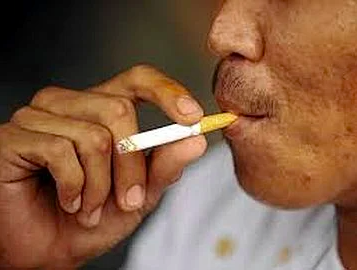
Inquirer file photo
CEBU CITY, Philippines — Selling and manufacture of fake goods and illicit tobacco trade in Cebu City may soon shut down as law enforcement agencies here support the proposed ordinance that would curtail the sale, rental, transfer, and distribution of pirated, counterfeit, or fake goods, and illicit tobacco trade.
On Wednesday, April 26, 2023, the Cebu City Council’s regular meeting included a public hearing for Cebu City Vice Mayor Raymond Garcia’s proposed “Anti-Illicit Trade and Fake Goods Ordinance.”
During the public hearing, representatives from the Criminal Investigation and Detection Group in Central Visayas (CIDG-7) and the National Bureau of Investigation in Central Visayas (NBI-7) appeared before the council.
READ: VM Garcia files ordinance vs fake goods, illicit tobacco trade
Both law enforcement offices are in support of the proposed ordinance.
Lawyer Wenceslao Galendez Jr. executive officer for operations of the NBI 7, said the proposed measure would be advantageous for law enforcement.
The NBI 7, however, recommended an additional provision for the proposed ordinance that instead of stating in the ordinance that the “City of Cebu shall motu proprio take action for violations of this ordinance or upon complaint by a registered trademark owner,” the NBI 7 suggested that any concerned citizen with personal knowledge or verifiable information, regarding violations of any provisions of the ordinance can complain or file the necessary action in court or through the assistance of the concerned law enforcement agencies, provided that he or she must execute a complaint affidavit.
“It is our observation that if we just limit the complaining party to the City of Cebu or any registered trademark owner, it might affect the enforcement and prosecution ability that the proposed ordinance seeks to achieve considering that not all trademark owners will take action maybe because of financial or personal reasons,” he said.
“Also, the city might be busy with other things that it cannot fully monitor the provisions of the proposed ordinance,” he added.
Stiffer fines
For his part, CIDG Chief Investigation Officer Police Captain Pablo Gentalian said they generally agree to the provision of the ordinance. However, they would suggest a stiffer or higher amount for the administrative fines to be imposed against violators.
The CIDG 7 recommends that the administrative fine of P5,000 should be increased to P20,000 for these violators.
“Likewise, increase the penalties if possible, either imprisonment or fine for those violators to not more than two years but not less than one year to increase the fine to P20,000,” Gentalian told the council.
The CIDG 7 also asked the author of the proposed ordinance to grant a delegate of power to PNP CIDG and or deputized law enforcement agencies personnel to conduct visits in different business establishments within Cebu City.
These recommendations have been taken by Garcia for consideration.
Under the vice mayor’s proposed measure, all business licenses and permits issued by Cebu City should carry the express conditions: (1) that the licensee shall not engage in the sale, rental, transfer, distribution, manufacture, and/or production of pirated, counterfeit, or fake goods, articles and/or services and illicit tobacco products, and (2) that the licensee shall not allow other persons to commit said acts within its business establishment or premises.
He maintained that the proliferation of illicit tobacco products and counterfeiting of intellectual property rights “not only cause economic prejudice and demoralization” among legitimate businessmen and establishments but also discourage foreign investments and undermine the city’s strategy for growth and development, resulting in “unrealized revenues and taxes.”
Garcia, in his proposed ordinance, refers “illicit tobacco products” to cigarettes, vapor products, and heated tobacco products that have no genuine internal revenue stamp.
These include those that do not have the graphic health warnings required under Republic Act No. 10643 or do not comply with the minimum price as required by law.
Once approved, violators of this ordinance will could face suspension of their business permit or license for a period of 15 days for the first violation; 30 days for the second violation, and the revocation of their business permit for the third and subsequent violations.
RELATED STORY:
Proposed ordinance against ‘illicit trade, fake goods’ up for public hearing